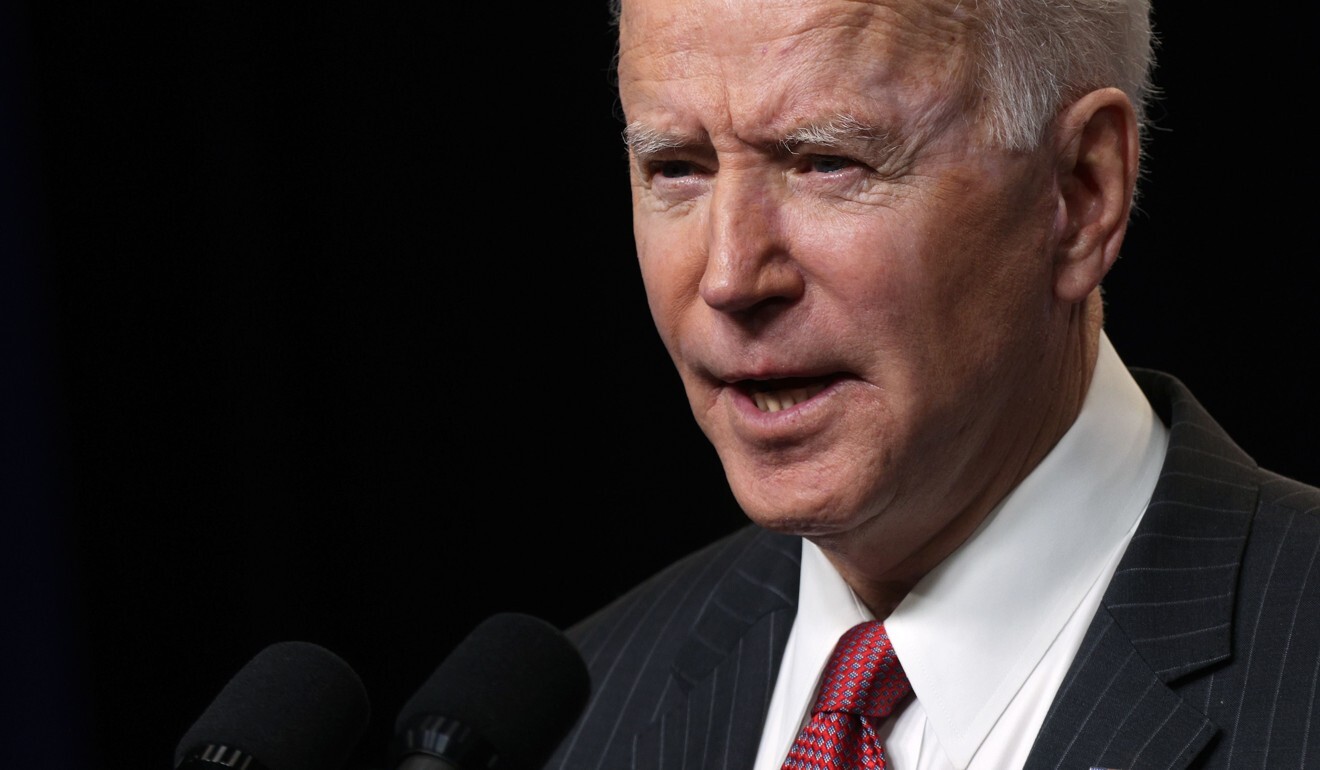
US-China trade deal: Biden’s team seem unlikely to relent on Beijing’s commitments
- New US Trade Representative Katherine Tai says China must deliver on the purchase commitments it made in the phase one agreement signed in January last year
- China agreed to buy an additional US$200 billion worth of American goods and services but sour relations and Covid-19 led to targets being missed
Chinese Foreign Minister Wang Yi said in December that while China had the capacity and demand to buy more US products, that applied only to items it actually needed or wanted. Redressing the two countries’ long-standing trade balance would be “a matter of time” he said.
Wang also suggested restarting negotiations of an investment deal between the two countries, which began during the Barack Obama administration.

Shi Yinhong, a government adviser and professor of international relations at Renmin University in Beijing, said Tai’s comments were the “toughest message” yet on Biden’s trade policy for China.
“Tai fell short of talking about the possibilities for policy adjustment and instead underscored the need to make China live up to its purchase commitments,” he said.
Beijing made huge concessions in the phase one trade deal, like committing to buying more goods than it needed to prevent US-China ties derailing, he said.
An American businessman in Beijing who asked not to be named said the phase one deal was doomed to fail from the outset, “as no one expected China to be able to achieve those purchase numbers”.
It was already technically out of compliance as Beijing had failed to meet its first-year target, the person said.

Under the deal, China agreed to buy an additional US$200 billion worth of US goods and services in 2020 and 2021 from 2017 levels. But with the effects of the coronavirus pandemic and souring relations between the two countries, it missed those targets by some way.
According to analysis by the Peterson Institute of International Economics (PIIE) in Washington, China fulfilled just 58 per cent of its purchasing goals in the first year of the deal.
Although it beat its targets for pork, corn, cotton and wheat, it fell behind on soybeans, sorghum, lobster and other agricultural products. Its purchases of American energy products also fell short, achieving just 40 per cent of the 2020 commitment, the report said.
Washington also said recently it would keep in place the punitive tariffs imposed by Trump on Chinese products and evaluate how to proceed after a review.
Chinese Foreign Minister Wang responded on Monday, saying the US should scrap the tariffs, end the suppression of Chinese technology firms and lift its restrictions on science research institutes.
Under the terms of the phase one deal, top-level officials from the US and China are expected to meet every six months for talks. Once her position has been confirmed by the US Senate, Tai will head the US team for such meetings.
The most recent talks were in August, when Chinese Vice Premier Liu He and then US trade representative Robert Lighthizer agreed to continue implementing the deal. Although there has been no top-level contact on the trade front since then, insiders say talks have continued at a working level.
“We hope the consultation mechanism can resume as soon as possible,” said Lu Xiang, a senior fellow of US studies with the Chinese Academy of Social Sciences.
“The phase one deal was an important sign of goodwill for China to improve the trade balance with the US, but the decline in US supply during the pandemic and [Washington’s] poisonous policies towards China undermined the consultation mechanism and led to difficulties in implementing some of the purchase commitments,” he said.
“There will be no positive outcome if the US continues with its strategic competition with China.”
Joe Biden orders review of US supply chains’ reliance on overseas producers
Chad Bown, who is in charge of trade deal analysis at the PIIE, said in a commentary this month that Biden’s trade team should look at how the European Union’s investment agreement with China achieved commitments from Beijing on such things as opening up its financial services market and ending compulsory technology transfers.
Those were “an achievement won without the costs of a trade war”, he said.
Shi said that regardless of the phase one deal, China had the demand for more American products and could increase its imports of them as part of its economic recovery.
But whether Beijing fulfilled its commitments under the agreement was another matter, given the overall tensions between the two countries, he said.
“There has been too much confrontation,” he said. “Cooperation on trade is welcome but it won’t significantly alter the overall picture.”
Additional reporting by Rachel Zhang

